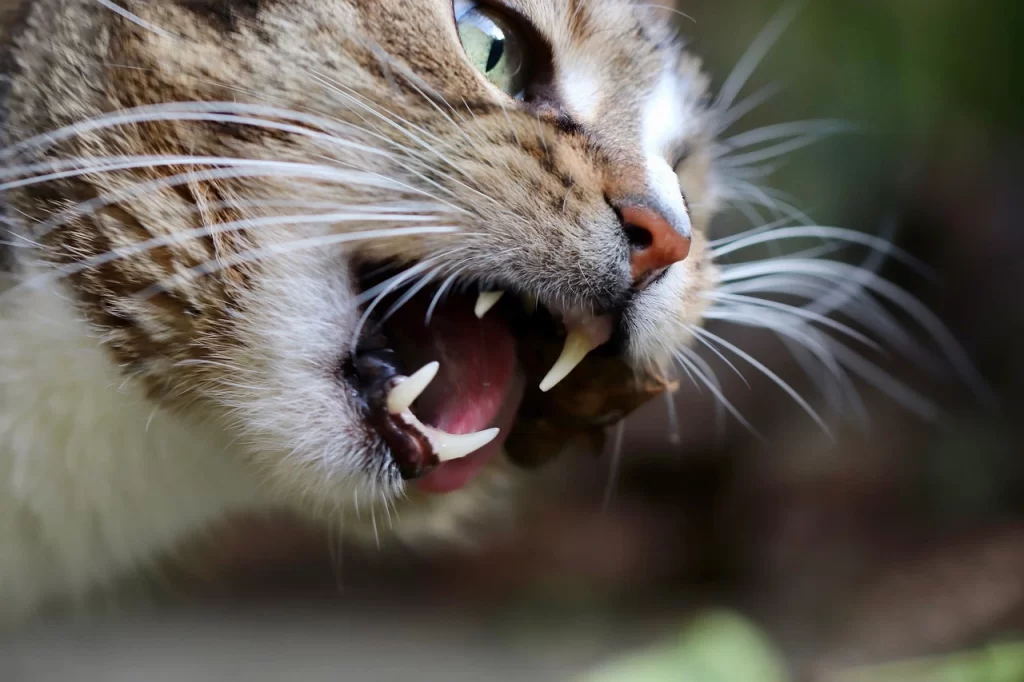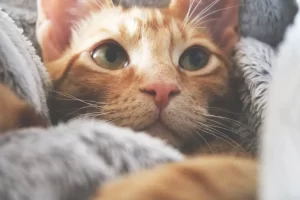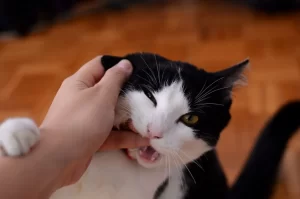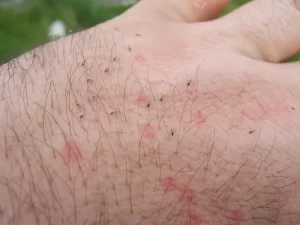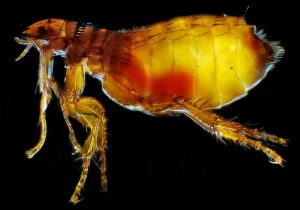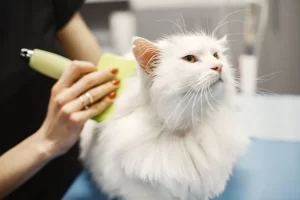A tooth abscess in a cat can be a painful and serious condition. Fortunately, there are several home treatments that can help alleviate the symptoms and promote healing. However, it’s important to remember that while home treatments can be helpful, they should never be used as a substitute for veterinary care. If your cat has symptoms of a tooth abscess, it’s important to take them to a veterinarian for evaluation and treatment. In this article, we will discuss various home treatments for cat tooth abscesses, including warm compresses, salt water rinses, herbal remedies, and proper diets. By incorporating these treatments into your cat’s care plan, you can help ease their discomfort and promote healing.
Table of Contents
ToggleWhat is a cat tooth abscess and what causes it?
According to PetMD, A cat tooth abscess is a painful condition where bacteria and pus build up in the soft tissue surrounding the root of a tooth. This can occur due to a variety of causes, including:
- Dental Decay: Decay or cavities in a cat’s tooth can allow bacteria to penetrate into the inner tissues, leading to an abscess.
- Gum Disease: Inflammation and infection of the gums, also known as gingivitis, can lead to abscesses.
- Trauma: A cat that has suffered an injury to its mouth, such as a broken tooth, may develop an abscess.
- Foreign Objects: Objects that become lodged in a cat’s mouth, such as grass seeds, can cause abscesses.
- Tooth Resorption: This is a common condition in cats where the body’s immune system attacks the tooth, causing pain and eventual abscess formation.
- Dental Infections: Bacterial infections, such as stomatitis, can spread from the mouth to the roots of teeth and cause abscesses.
- Feline Immunodeficiency Virus (FIV): Cats with FIV are more susceptible to infections, including abscesses.
These conditions can cause inflammation and damage to the tissues surrounding the tooth, allowing bacteria to penetrate and cause an abscess. If left untreated, a tooth abscess can spread to other parts of the body and cause serious health problems.
The symptoms of a cat tooth abscess
The symptoms of a cat tooth abscess can include:
- Pain: A cat with a tooth abscess may exhibit signs of pain when eating, chewing, or when the affected area is touched.
- Swelling: A noticeable swelling or bulge may be present near the affected tooth.
- Redness: The area surrounding the affected tooth may be red and inflamed.
- Pus Discharge: Pus may drain from the affected area.
- Bad Breath: Cats with tooth abscesses may have a noticeable odor coming from their mouth.
- Loss of Appetite: The pain associated with a tooth abscess may cause a cat to lose its appetite.
- Decreased Activity: A cat with a tooth abscess may be less active and more lethargic than usual. Cat’s energy level may be boosted by using home treatments such as natural supplements, proper nutrition, and more.
- Drooling: Excessive drooling may be present in cats with a tooth abscess. In this case, give your cat some relief by using some of these cat drooling home treatments.
- Foul Taste in Mouth: Cats with tooth abscesses may experience a foul taste in their mouth, causing them to avoid eating.
These symptoms may develop gradually over time or may appear suddenly. If you suspect your cat has a tooth abscess, it is important to seek veterinary treatment as soon as possible.
The importance of seeking veterinary treatment for a tooth abscess
Seeking veterinary treatment for a cat tooth abscess is important for several reasons:
- Pain Management: A tooth abscess can cause significant pain and discomfort, and veterinary treatment is needed to relieve this pain.
- Diagnosis: A veterinarian can diagnose the cause of the abscess and determine the best course of treatment.
- Proper Treatment: Antibiotics and other medications may be needed to properly treat the abscess and prevent it from spreading to other parts of the body.
- Prevention of Complications: Left untreated, a tooth abscess can spread to other parts of the body, causing serious health problems. Seeking veterinary treatment can prevent these complications.
- Dental Procedures: In some cases, tooth extraction may be necessary to treat a tooth abscess. This is a procedure that should only be performed by a veterinarian.
- Monitoring: A veterinarian can monitor the healing process and ensure that the abscess has been fully treated.
- Future Prevention: A veterinarian can provide advice on how to prevent future tooth abscesses and maintain good oral health for your cat.
Seek veterinary treatment for a tooth abscess as soon as possible to prevent the spread of the infection and ensure the best outcome for your cat. Read more on How often should I take my cat to the vet?
Home remedies for a cat tooth abscess
It is important to note that while home remedies may provide some relief, they should not be used as a substitute for veterinary treatment. A cat tooth abscess is a serious condition that requires proper medical attention.
However, some of the home remedies that may provide some relief for a cat with a tooth abscess include:
- Pain Management: Over-the-counter pain medications, such as acetaminophen or ibuprofen, can be used to help manage pain in cats under veterinary supervision.
- Saltwater Rinse: Rinsing your cat’s mouth with salt water can help reduce pain and swelling.
- Warm Compresses: Placing a warm compress on the affected area can help soothe pain and reduce swelling.
- Soft Foods: Feeding your cat soft foods can help reduce pain and discomfort when eating.
- Dental Hygiene: Brushing your cat’s teeth and providing dental chews can help maintain good oral health and prevent future abscesses.
It is important to note that these home remedies should only be used in conjunction with veterinary treatment and under the supervision of a veterinarian. Any changes in your cat’s behavior or symptoms should be reported to your veterinarian immediately.
Using warm compresses to relieve pain and swelling
Using warm compresses is a common home remedy for relieving pain and swelling associated with a cat tooth abscess. Here is a step-by-step guide to using warm compresses:
- Gather Materials: You will need a clean washcloth, warm water, and a bowl.
- Soak Washcloth: Soak the washcloth in warm water and wring out excess water. The water should be warm, not hot, to avoid burning your cat’s skin.
- Apply Compress: Place the warm washcloth on the affected area for 10-15 minutes at a time. You can repeat this process several times per day.
- Monitor Reaction: Observe your cat’s reaction to the warm compress. If they seem uncomfortable or agitated, discontinue the treatment and consult with your veterinarian.
- Maintenance: Reheat the washcloth as needed and replace it with a fresh washcloth if it becomes soiled.
It is important to note that warm compresses should only be used as a supplemental treatment and under the supervision of a veterinarian.
Using salt water rinses to promote cat tooth abscess healing
Saltwater rinses can be a helpful home remedy for promoting healing in cats with tooth abscesses. Here is a step-by-step guide to using saltwater rinses:
- Gather Materials: You will need a bowl, warm water, and 1/2 teaspoon of salt.
- Prepare Saltwater: Mix the salt into a bowl of warm water until fully dissolved. The water should be warm, not hot, to avoid burning your cat’s mouth.
- Rinse Mouth: Gently lift your cat’s lip and use a syringe or eyedropper to slowly squirt the salt water into their mouth, directing the rinse towards the affected tooth. Be careful not to squirt the rinse too far back, as this can cause your cat to choke.
- Repeat Process: Repeat the saltwater rinse two to three times per day, or as recommended by your veterinarian.
- Monitor Reaction: Observe your cat’s reaction to the saltwater rinse. If they seem uncomfortable or agitated, discontinue the treatment and consult with your veterinarian.
It is important to note that saltwater rinses should only be used as a supplemental treatment and under the supervision of a veterinarian.
Using essential oils for cat tooth abscess
Common essential oils that may be used as complementary treatments for a cat’s tooth abscess include tea tree oil, clove oil, and lavender oil. Tea tree oil has antiseptic properties and can help to reduce inflammation, while clove oil is often used for its pain-relieving properties. Lavender oil is also believed to have soothing and healing effects. Here is a step-by-step guide to using tea tree oil:
- Gather Materials: You will need tea tree oil and a cotton ball or clean cloth.
- Dilute Oil: Dilute the tea tree oil with an equal amount of water to reduce its potency.
- Apply Antiseptic: Dampen a cotton ball or clean cloth with the diluted tea tree oil and gently dab it on the affected area.
- Monitor Reaction: Observe your cat’s reaction to the tea tree oil. If they seem uncomfortable or agitated, discontinue the treatment and consult with your veterinarian.
It is important to note that tea tree oil can be toxic to cats and should only be used with caution and under the supervision of a veterinarian. Additionally, it’s best to avoid using essential oils on or near a cat’s face, as they can be easily inhaled and cause respiratory distress.
Feeding soft, moist food to reduce chewing discomfort
A proper diet and soft, moist food can help to reduce discomfort in cats with tooth abscesses. Here are some tips for feeding your cat with a tooth abscess:
- Soft Foods: Offer soft, moist foods that are easy for your cat to eat, such as canned or pouches of wet food, or a commercial prescription diet for cats with dental issues. Avoid hard, crunchy foods that can cause discomfort or further damage to the affected tooth.
- Temperature: Warm the food to near body temperature to help stimulate your cat’s appetite.
- Small Portions: Offer small, frequent portions throughout the day to keep your cat well-fed and hydrated.
- Avoid Dry Foods: Avoid feeding your cat dry kibble, as it can be difficult for them to eat and may cause further discomfort.
Herbal remedies for cats with tooth abscesses
Herbal remedies can be used as a supplemental treatment for cats with a tooth abscess, but should only be used under the supervision of a veterinarian. Here are some tips for using herbal remedies:
- Consult a Veterinarian: Before using any herbal remedies, consult with your veterinarian to ensure that the remedy is safe for your cat and will not interfere with any other treatments.
- Choose Herbs Carefully: Choose herbs that are known to have anti-inflammatory and antiseptic properties, such as chamomile, echinacea, or goldenseal.
- Dilute Herbs: Dilute the herbs in a small amount of water before administering to your cat.
- Administer Safely: Administer the herbal remedy by mixing it into your cat’s food, or using a dropper or syringe to squirt it into their mouth.
- Monitor Reaction: Observe your cat’s reaction to the herbal remedy. If they seem uncomfortable or agitated, discontinue the treatment and consult with your veterinarian.
Common herbs used for cat tooth abscesses include:
- Chamomile: Known for its anti-inflammatory and pain-relieving properties, chamomile can help to reduce swelling and discomfort associated with a tooth abscess.
- Echinacea: Echinacea is known for its ability to boost the immune system and fight infections, making it a useful herb for cats with a tooth abscess.
- Goldenseal: Goldenseal is a natural antiseptic that can help to reduce inflammation and fight infections associated with a tooth abscess.
It is important to note that herbal remedies can have unpredictable effects and may interact with other medications. Overuse or incorrect use of herbal remedies can cause serious side effects.
The role of dental cleanings and extractions in treating a tooth abscess
Dental cleanings and extractions can play an important role in treating a cat tooth abscess. Here’s a brief overview of these procedures:
- Dental Cleanings: Regular dental cleanings can help prevent tooth abscesses by removing plaque and tartar build-up. This can help to maintain good oral health and reduce the risk of infection.
- Extractions: If a tooth is damaged beyond repair or has a significant abscess, extraction may be necessary. This is a procedure in which a veterinarian removes the damaged or infected tooth. Extractions can help to alleviate pain and prevent the spread of infection.
It is important to note that dental cleanings and extractions should only be performed by a veterinarian with experience in feline dentistry.
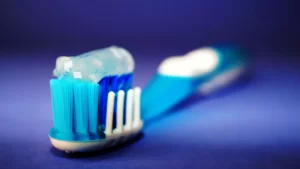
Maintaining good oral hygiene for cats to prevent tooth abscesses
Maintaining good oral hygiene for cats can help to prevent tooth abscesses and ensure good overall oral health. Here are some methods for maintaining good oral hygiene for cats:
- Brush your cat’s teeth regularly: Brush your cat’s teeth using a toothbrush specifically designed for cats and a toothpaste made for cats. Start slowly and gradually increase the amount of time spent brushing to get your cat used to the process.
- Offer dental chews and toys: Offer your cat dental chews and toys that are designed to clean teeth and massage gums. These can help to remove plaque and tartar build-up.
- Feed wet food: Wet food can help to promote healthy teeth and gums. It can also increase saliva production, which can help to neutralize plaque-causing acids.
Regular veterinary check-ups: Take your cat to the veterinarian regularly for check-ups, including dental evaluations. Your veterinarian can perform a dental cleaning and help identify any potential oral health problems.
The dangers and complications of leaving a tooth abscess untreated
Leaving a cat tooth abscess untreated can result in a number of dangers and complications, including:
- Spread of infection: An abscess can spread to other parts of the body and cause serious systemic infections.
- Pain and discomfort: An abscess can cause pain, swelling, and discomfort. It can also affect your cat’s ability to eat and drink properly, which can lead to further health problems.
- Bone loss: If left untreated, an abscess can cause bone loss around the affected tooth, which can lead to tooth loss.
- Abscess rupturing: If left untreated, the pressure from the abscess can cause the tooth to break open, releasing pus and bacteria into the surrounding tissue.
- Septicemia: An untreated abscess can also lead to septicemia, a life-threatening systemic infection.
It’s important to seek veterinary treatment for a cat tooth abscess as soon as possible to prevent these dangers and complications from occurring.
The role of genetics in a cat’s risk of developing tooth abscesses
The role of genetics in a cat’s risk of developing tooth abscesses is not well understood, but some breeds may be predisposed to certain oral health problems, including tooth abscesses. For example, Persian cats are often predisposed to dental problems, including the overcrowding of the teeth and malocclusion, which can lead to tooth abscesses. Other breeds, such as Siamese and Maine Coon cats, may also be at higher risk for developing tooth abscesses.
However, genetics is just one factor that can contribute to a cat’s risk of developing a tooth abscess. Other factors, such as poor oral hygiene, a diet high in carbohydrates, and the accumulation of plaque and tartar on the teeth, can also increase the risk of developing an abscess.
Supportive supplements
Supplements can play a role in maintaining good oral health and preventing tooth abscesses in cats. Some common oral health supplements for cats include:
- Omega-3 fatty acids: Omega-3 fatty acids have anti-inflammatory properties that can help reduce inflammation in the mouth and reduce the risk of developing tooth abscesses.
- Vitamin C: Vitamin C is an antioxidant that can help strengthen the immune system and promote healing in the mouth.
- Probiotics: Probiotics can help maintain healthy oral flora and reduce the risk of developing tooth abscesses.
- Enzymes: Enzymes can help break down food and plaque, reducing the risk of tooth decay and abscesses.
It’s important to note that supplements should always be used under the supervision of a veterinarian.
Which vet to visit with what expertise?
If your cat has symptoms of a tooth abscess or you suspect that it may have an oral health problem, it’s important to take them to a veterinarian for evaluation and treatment.
A general practitioner veterinarian can diagnose and treat most tooth abscesses in cats. However, in some cases, a veterinary dental specialist may be necessary. A veterinary dental specialist has advanced training in the diagnosis and treatment of dental problems, including tooth abscesses.
If your cat requires more advanced dental treatment, such as extractions or dental surgery, a veterinary dental specialist may be better equipped to handle the procedure. Your veterinarian can help determine if a referral to a veterinary dental specialist is necessary for your pet.

